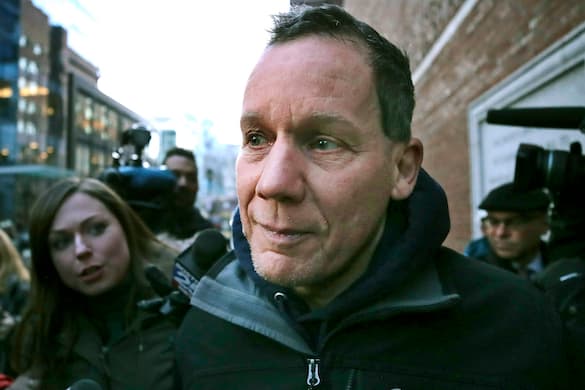FBI, Prosecutors Outline Chinese Communist Intimidation, Surveillance, Influence
The Communist regime is so brittle and insecure that it views even the mildest challenge — a poster from a music student, a Boston rally for rule of law in Hong Kong — as a mortal threat.

BOSTON — The Department of Justice, in a series of moves, is unearthing Chinese Communist attempts to infiltrate American universities and to intimidate U.S.-based advocates of freedom, democracy, and the rule of law in Hong Kong and China.
There are recent developments in three Massachusetts-based cases.
A May 15 Justice Department press release describes the indictment of Litan Liang, 63, of Boston’s Brighton neighborhood, for acting as an unregistered agent of the Chinese Communist government. Mr. Liang has pleaded not guilty, and the Foreign Agents Registration Act is overdue for a review by Congress. The activities described in the indictment, though, are disturbing.
According to the indictment, Mr. Liang, consulting with Chinese government officials, co-founded something called the New England Alliance for the Peaceful Unification of China, and organized a pro-Beijing counterprotest against a Boston rally for democracy and rule of law for Hong Kong.
The indictment says Mr. Liang exchanged messages with, “Individual 7, a professor from Jinan University … who at the time was a visiting academic at University 1 in Boston.” The individual and the university are not identified in the indictment.
“Attempts to repress constitutionally protected rights here in the United States will never be tolerated. Anyone who infringes upon those rights on American soil will be identified and held to account,” the U.S. attorney for the district of Massachusetts, Rachael Rollins, said in announcing Mr. Liang’s arrest.
In January, a Chinese foreign student at the Berklee College of Music at Boston, Xiaolei Wu, was indicted on one count of cyberstalking and one count of interstate transmissions of threatening communication. The indictment accuses him of threatening a student who had in October 2022 hung a poster reading: “We want freedom…we want democracy…stand with Chinese People.” The threat, as translated and quoted in the indictment, said: “Post more, I will chop your bastard hand(s) off. I already called the tipoff line in the country, the public security agency will go greet your family…. You should wash dishes for the capitalist dogs.”
In the Boston-area case that has attracted the most attention, a scientist who was chairman of Harvard’s chemistry and chemical biology department, Charles Lieber, was sentenced April 26 by a U.S. senior district court judge, Rya W. Zobel, to time served (two days) in prison; two years of supervised release with six months of home confinement; a fine of $50,000; and $33,600 in restitution to the IRS.
A jury had convicted Lieber of lying to the American government about his affiliation with and income from Communist China’s Thousand Talents Program and the Wuhan University of Technology at Wuhan, China.
The Massachusetts developments echo federal charges in New York, where federal prosecutors recently accused two men, “Harry” Lu Jianwang and Chen Jinping, of basically operating a mukhabarat station — calling it a “police” station is an insult to the police — at Lower Manhattan.
What to make of all this activity? It’s more revealing about China than about America. The Communist regime is so brittle and insecure that it views even the mildest challenge — a poster from a music student, a Boston rally for rule of law in Hong Kong — as a mortal threat.
Without the spying and the fear and the violent threats, an authoritarian regime can’t survive. The Communist Party knows it lacks the legitimacy that comes with democracy and freedom. Once word spreads about the true nature of the government in Beijing — and once people perceive that it can be successfully challenged — it will be all over.
The Congressional-Executive Commission on China has documented thousands of political prisoners in China. For the ruling Communist Party, though, it’s not enough to quash independent voices inside China and Hong Kong. They can’t tolerate dissent from America, either.
One can understand why. When Ronald Reagan, Lane Kirkland, Albert Shanker, Pope John Paul II, Senator Henry “Scoop” Jackson, Lech Walesa, and Natan Sharansky defeated the Soviet Union, they worked to a large extent from outside the superpower’s borders. The Chinese Communists understand that, which is why they are so desperate to prevent a similar attempt to bring freedom and democracy to China.
Once American leaders and the American public grasp the possibilities, perhaps they’ll shift from playing defense to crafting an offensive strategy aimed at supporting freedom and democracy in China.
If we don’t help bring American-level standards of political and religious freedom there, China will keep pressing to export Communist standards of compliance and conformity here. The FBI and the Justice Department can play a part, but to win a war like this peacefully demands a broader effort that includes Congress, labor, the religious community, and the entire government, including the president.

